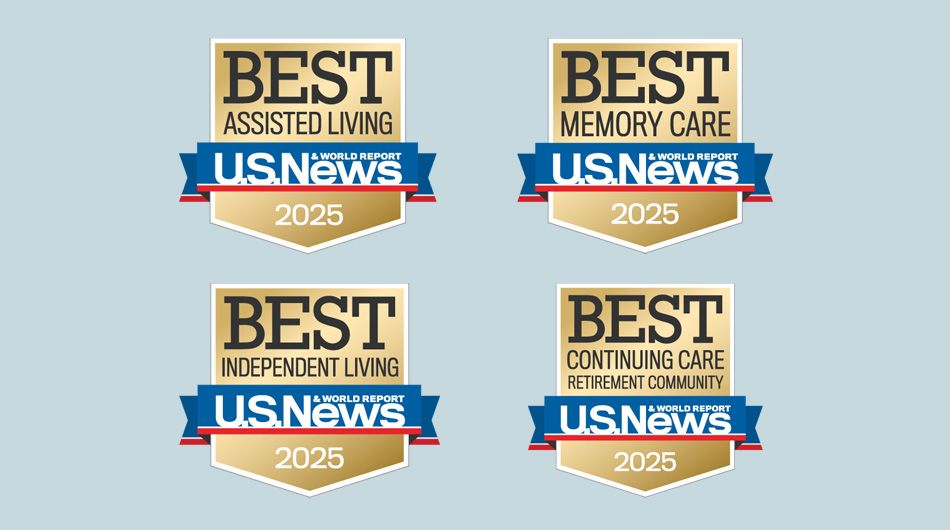There’s a dramatic dip in searches for senior care related terms during the festive month of December, only to be followed by a significant spike in January. Is your company prepared for the influx of inquiry calls to come? And just as importantly, will your website be found when people are searching for help?
As we gear up for the most wonderful time of the year, there’s much than shopping and baking that needs to be done by those in the post-acute care industry. It’s a time to prepare for what’s ahead after the holiday season ends.
Holiday visits are opportune times for family members to detect red flags that point to the need for care services. While families spend extended time together, in the midst of the laughter and reminiscing, subtle signs emerge—empty fridges, neglected medications, a less-than-tidy home—that hint at the challenges older loved ones face. These clues, often overlooked in the whirlwind of everyday life, become glaringly apparent during the holidays.
As families leave the holiday festivities behind and return to their own routines, they carry with them a newfound awareness. They recognize the need for help and begin looking for solutions.
Google Trends doesn’t lie—it shows a dramatic dip in searches for senior care related terms during the festive month of December, only to be followed by a significant spike in January. Is your company prepared for the influx of inquiry calls to come? And just as importantly, will your website be found when people are searching for help?
Preparing Your Digital Front Door
Your website is more than just a virtual presence; it’s a lifeline for families navigating the complexities of senior care. Take a moment to evaluate its readiness:
Navigating the SEO Maze
Even the most user-friendly and informative website is useless unless people are able to find it when searching online. To make sure your target audience finds your website before your competitors’ requires implementing the appropriate optimization tactics.
To obtain optimal results requires a combination of both organic search engine optimization and pay-per-click advertising. The key is knowing when to use each and how they can work together seamlessly to elevate your online presence:
1. SEO: The Foundation for Long-Term Growth
SEO, or search engine optimization, is fundamental to establishing and maintaining a strong online presence for your care company. Its primary goal is to enhance your website’s visibility in search engine results pages (SERPs), ensuring that potential clients can easily find you when searching for relevant services.
Think of SEO as laying the groundwork for long-term success. By strategically optimizing your website’s content, structure, and authority, you increase the likelihood of ranking higher in organic search results. This means that over time, your website will attract a steady flow of visitors without the need for paid advertising.
SEO involves various techniques, including keyword optimization, content creation, link building, and technical optimizations. By implementing these strategies effectively, you improve your website’s relevance and authority in the eyes of search engines like Google, leading to higher rankings and increased visibility.
2. PPC: The Quick Boost When Needed
In contrast to SEO’s gradual approach, PPC (pay-per-click) advertising provides immediate visibility for your business. It operates on a simple principle: you create ads, and you pay each time someone clicks on them. This instant traffic boost can be likened to flipping a switch to turn on a faucet of visitors to your website.
PPC is particularly useful for time-sensitive promotions or initiatives where immediate results are crucial – such as during the post-holiday surge in people searching for care. It’s also beneficial when you’re launching a new service, promoting a special offer, or aiming to increase brand awareness quickly, allowing you to reach your target audience swiftly and effectively.
While PPC offers instant gratification, it’s essential to recognize that it comes with a cost. Unlike organic traffic generated through SEO, which is free, PPC requires a budget allocation for ad spend. This means that you need to carefully manage your PPC campaigns to ensure that you’re maximizing your ROI.
Despite its cost, PPC can serve as a valuable complement to your long-term SEO strategy. For example, if your SEO efforts are still gaining traction and you want to boost traffic in the meantime, PPC can fill the gap. Additionally, PPC allows you to target specific demographics, locations, or keywords with precision, making it a versatile tool for reaching your desired audience.
3. Combining Forces: Maximizing Impact
Rather than pitting SEO against PPC, understand that there is a potential synergy between these two strategies. By integrating them effectively, you can maximize the impact of your marketing efforts and achieve better results. Here’s how you can leverage the strengths of both SEO and PPC to enhance your online presence:
While the concept of SEO may seem daunting, it’s a crucial piece of the puzzle. A well-crafted SEO strategy ensures that your website doesn’t get lost in the vast expanse of the internet.
Remember, the post-holiday surge in care searches isn’t just a trend—it’s an opportunity to make a meaningful difference in the lives of families and their older loved ones. With the right approach, your care company’s website can be the beacon of hope they’re searching for.
Connect with a care marketing firm that specializes in the intricacies of SEO and PPC specific to the post-acute care industry to ensure those who desperately need your services can find and connect with you.
About the Author
Amy Selle is Vice President of corecubed, a care marketing company that uses the best care marketing talent to promote the best care companies. Amy acts as a strategic marketing partner to corecubed clients, helping them achieve results in an increasingly dynamic marketplace. To help ensure your company stands out in the crowded care marketplace, contact the care marketing experts at corecubed. Phone: 800.370.6580 Email: info@corecubed.com Visit: www.corecubed.com.
Related Posts











